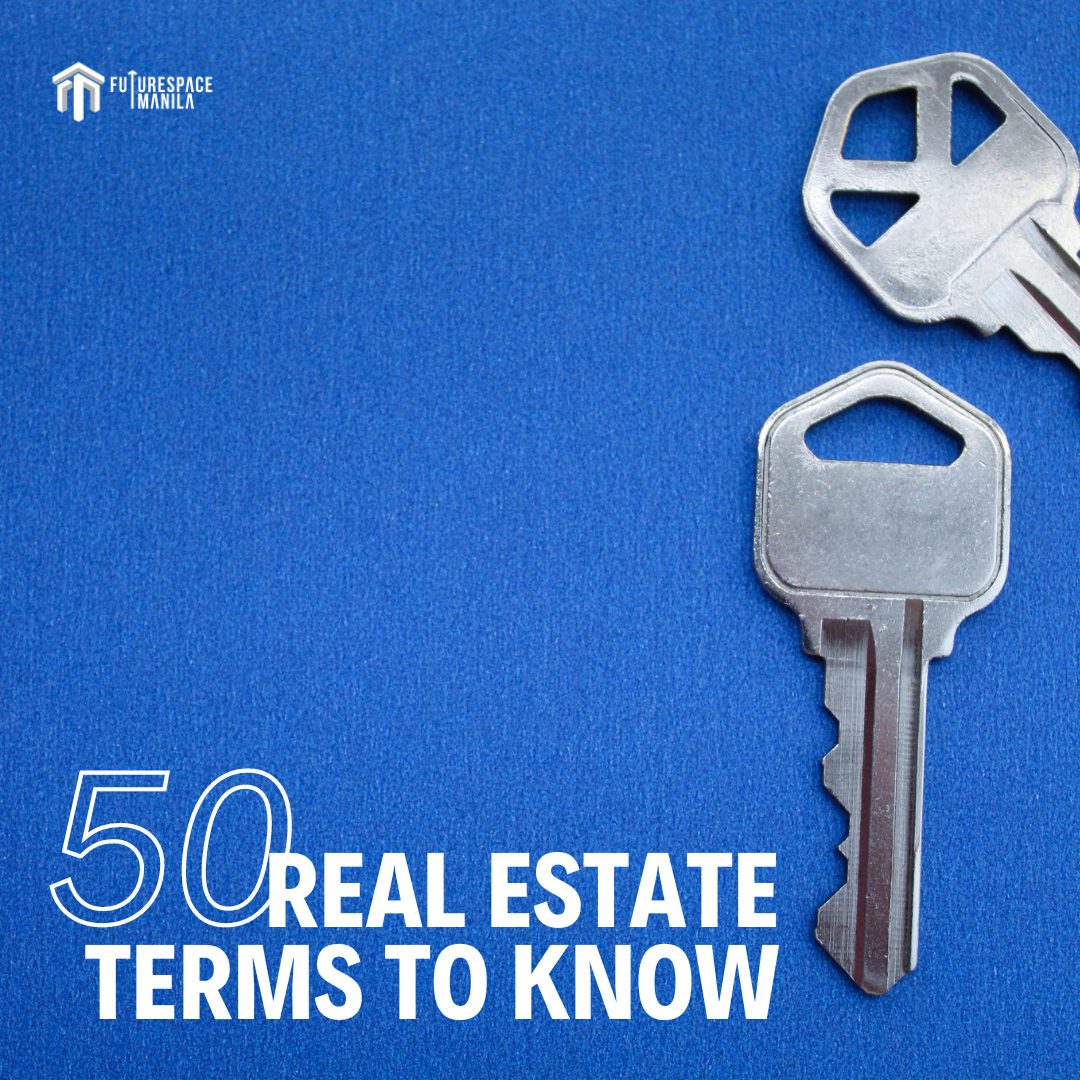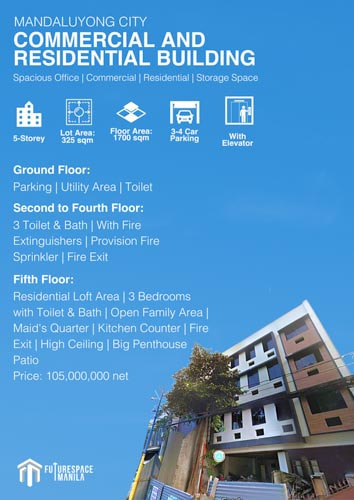|
Commercial real estate is considered by investors as a prospective successful investment vehicle mainly due to its high potential yield. Investors see it as an excellent alternative investment that could possibly outperform stocks and bonds. Moreover, a commercial property compared to other real estate assets, see through a more stable growth over time, dodging the volatility of economic cycles.
Between a residential property and a commercial property, investing in commercial real estate, of course, tend to be a larger investment. It involves more tenants thus has a potential to yield larger profits. That said, commercial properties also tend to require more capital and demand a deeper real estate expertise in the beginning. It would be wise for an investor who will pursue investing in commercial real estate to have a comprehensive knowledge of the market area, the property's history, the property's value and estimated revenue. Types of Commercial Properties Common types of commercial properties include:
To mitigate the risks prior to investing, it is crucial for investors to understand first the pros and cons of investing in commercial real estate. Pros of Investing in Commercial Property Commercial properties present an opportunity to achieve financial success and establish a strong portfolio. Here are some of the benefits that come with a commercial real estate investment. 1. Income Potential Among the top reasons to invest in a commercial property over a residential real estate property is the high earning potential. According to creuniversity.com, commercial real estate can pay upwards of 10% returns. In comparison, stocks only pay 3% annually. Annual return off the purchase price also depends on the commercial property's location, the current economic trends, and external factors like political or health crisis (such as a pandemic). That said, any annual return between 6% to 12% is still higher than a single family residential property at 1% to 4% at best. 2. Higher Rental Yields A commercial property standing on prime location can offer higher rental income than any a residential property. The value of retail and offices also improves over time if properly maintained. Development of residential properties and updated modern infrastructure in the area can also increase the overall value of any commercial real estate property. 3. Professional Relationships with Tenants Commercial property tenants are commonly business owners who can be trusted to protect and take pride in their livelihood. They can be expected to look out for the maintenance of the commercial property on which their store stands. As such, the landlord and tenant have more of a business-to-business customer relationship, which helps keep interactions professional. 4. Longer or Flexible Lease Terms An advantage of a commercial real estate property over a residential property is that commercial real estate attracts long term lease terms. Naturally if an investor secures a financially stable and reliable long term tenants like big corporations, organizations, government agencies, he or she can earn a steady income for years to come. 5. Diversify Your Investment Portfolio Investors whether beginner or experienced can reap benefits off a diverse investment portfolio. An asset like a commercial real estate property can more often than not strengthen any investors financial standing. If you are already a residential property owner, investing in commercial real estate located in a prime location with good quality can take your portfolio up a notch. Getting advise from professional experts such as real estate brokers can point you to the right commercial property. Cons of Investing in Commercial Property As with other investments, there are a number of risks that commercial real estate investors should take time to review. Prior to committing to invest in a commercial property, an investor should see through a plan to address all risks. 1. High Cost Compared to a residential property, a commercial real estate property requires a big capital up front which most of the time only experienced investors can afford. Because commercial real estate properties are expensive, there is a possibility for an investor to lose a significant amount of capital. The expense can also limit an investor's ability to diversify their portfolio. 2. Maintenance and Repairs Due to their size, commercial real estate properties can be costly and demanding in maintenance in repairs compares to residential properties. Commercial premises are a place of business which are frequented by many people. Assuring the safety of the property is also the responsibility of tenants and the commercial property owner. 3. Market Risks Market conditions can adversely impact the value of a commercial property. Market conditions can affect rental rates, property taxes, interest rates, etc. These changes are volatile and can happen out of nowhere which investors must anticipate and plan for. 4. Vacancy Vacancy will naturally lead to lost income for a commercial property. This is particularly prevalent for a commercial property with a small group of tenants. Losing one can right away create an income shock for the property owner. High profit and decreased property value over time are among the great benefits of investing in commercial real estate. With careful planning, investors of any experience level can find their financial success in investing in commercial real estate.
17 Comments
It takes more than just buying a real estate property to make your venture into real estate, successful. As in anything, education is power. Processes will be easier to understand when you have a good grasp of the common terms used in the real estate business or legal terms in real estate contracts. Whether you are a real estate broker or a real estate investor, knowing the jargons such as "capital gains tax," "fair market value," "contract to sell," "abstract of title," "total contract price," or "certificate of title," will give you the confidence you need to succeed in your goals. You are also less likely to be deceived when you know the language of the game. Without further ado, here's a helpful list of real estate words and legal terms used in real estate transactions. Abstract of Title: a document that provides an overview of the history of a specific title. This includes transfers, property transactions, and claims used against it. Acquisition: The procedure for acquiring property ownership. A legal action is taken in order to purchase a real estate property. Acceleration Clause: the contract provision that allows a mortgage firm to demand that a borrower return the loan’s outstanding balance if the latter fails to meet specific conditions. Ad Valorem Tax: A kind of tax in which the amount is determined by the property's value. Adverse Possession: a right of an occupant to acquire title against the property owner where possession has become actual, continuous hostile, visible and distinct and in the concept of owner for a statutory period. Affidavit: a written statement sworn under oath, which can be used in the court of law. An example of this is an affidavit of self adjudication or a document a person drafts when they want to declare that the entire estate belongs to them. Agreement of Sale: a document that proves that the buyer agrees to purchase a property and that states the seller agrees to sell, under specific terms and conditions. Alienation: the complete transfer of a property from one party or owner to another. It can be voluntary, such as in the case of a sale, or involuntary, in the context of the government taking over the real estate for public consumption. Alienation Clause: A provision in a mortgage contract that allows the lender to make the loan immediately due in case the owner sells the property or transfers the title. Amilyar: also synonymous to land or property tax. Amortization: the method of spreading payments over a period of time. An amortized loan, for instance, shall be paid on a monthly basis, the amount covering principal and interest. Appraisal: the process of determining a property's value. Because the value of a property fluctuates often, almost every real estate transaction requites an appraisal report. Population, location, upgrades to the property, rehabilitation potential, and other factors all influence the value of a property. Appreciation: a term that refers to the increase in the value of a property over time. Assessed Value: or taxable value is the value placed on a taxable property by the assessor for ad valorem tax purposes. The tax due is the amount when the assessed value is multiplied by the tax rate. Assumption of Mortgage: this is an agreement in which the present owner’s outstanding loan balance is transferred to the property’s buyer. This is usually done to save money on closing fees or to avoid paying higher interest rates on a new mortgage. Attorney-in-fact: refers to the one who holds a power of attorney from another to execute documents on behalf of the grantor of the power. Simply put it is the individual who is permitted to conduct business on someone else’s behalf. When an investor is unable to sign contracts, buy or sell real estate, or deposit monies, for example, they may allow someone else to do it. Avulsion: refers to the abrupt detachment of a parcel of land from one property and its attachment to another, as a result of the current of a river or a body of water. The general rule is that the original owner retains the title of the land, provided that they remove the part of the property that shifted. Balloon Payment Mortgage: a kind of mortgage that did not fully amortize over the term stipulated in the agreement. Therefore, a remaining balance is left at maturity. The lump sum is called balloon payment, as it is significantly larger than the monthly payments. This often happens in real state commercial properties. Blanket Mortgage: refers to a simple mortgage which covers more than one piece of a property. Bundle of Rights: referred to as the rights of ownership, which state an owner's rights to own, use, abuse, dispose, exclude others, and recover a real property. Broker: Real Estate Broker, also called Certified Real Estate Broker (CRB) refers to a professional with a state license who helps buy, sell and transfer property. Brokers use their expertise and knowledge of the real estate industry to assist clients with paperwork, decision-making and legal compliance. Capital Gains Tax: refers to every time a seller sells a house or a land property, must pay this tax. Capital gains tax is a tax that is imposed on earnings the seller has gained from the sale of capital assets. It is charged at a flat tax rate of 6% of the gross selling price and must be paid within 30 days after each transaction. Certificate of Title: refers to a statement provided by an abstract company, title company, or attorney stating that the title to real estate is legally held by the current owner. Condominium unit: Also referred to as a condo, a condominium is a privately-owned individual unit within a large property complex. Condo owners receive a deed to the individual unit and also jointly own shared common areas, such as hallways, pools, elevators, and gyms, among others. Conjugal Property: Property and assets owned by a married couple are referred to as conjugal property or properties. Contract to Sell: refers to the form given by the property developer as an agreement with the seller and buyer when the property is pre-selling. Deed of Sale: the deed of sale is a written document executed under law, wherein a person grants or sold a certain land or property to another person. Depreciation: This is the decrease in an asset’s value, which may be caused by a host of factors, such as deterioration due to wear and tear, natural decay, functional or economic loss of utility, or unfavorable market conditions. Earnest Money: a sum of money tendered by a buyer to a seller that shall form part of a purchase price and becomes a proof of the perfection of the contract. Equity: this is the amount that represents the difference between the selling price and loanable amount. Earnest Money: If the buyer wants to demonstrate their purpose and good confidence in the purchase, earnest money is offered to the seller. This basically informs your seller that you are a serious buyer. The escrow account is usually where the earnest money is maintained. Escrow: In a loan or mortgage, an escrow is a neutral third party who protects the transaction’s deposits or papers. This term is usually mentioned near the end of the purchasing process. The term “escrow” can also refer to the party in charge of holding the insurance money or the taxes that collect until the loan is repaid. After then, the escrow pays “on behalf” of the payer. Fair Market Value: refers to the price for which an owner could sell a property to a willing buyer when neither of them have to sell or buy and both know all the relevant facts. To determine the property's fair market value, the best method is to compare the prices others have paid for something comparable. Fixed-Rate Mortgage: A fixed-rate mortgage means that the interest rate on your loan will not change until the contract expires or until a certain time period has passed. This sort of mortgage provides the buyer with the benefit of knowing exactly how much their monthly payments will be. Foreclosure: This occurs when the property’s titular owner is unable to make regular payments to a lender or pay the local government’s real property tax. Land Title: also called a certificate of title, is a record that attests to someone’s or a group’s legal capacity to acquire and own property. The basic goals of land title registration are protecting property rights, facilitating real estate transactions, and enabling the use of real estate as collateral for loans. A title also offers real estate investment benefits, stimulating sustained economic growth. Lease: A contract between an owner and a tenant that details the terms and circumstances under which the renter may inhabit and use the property, as well as the length of the lease. Lessee: A lessee is someone who leases land or property from a lessor or landlord. In the Philippines, a tenant is also known as a renter. Lessor: A lessor is someone who rents out a property to a tenant or lessee. In the Philippines, this person is also known as a landlord. Letter of Intent: a non-binding letter submitted by the buyer to express his or her intent to buy the property. Local Transfer Tax: the tax levied on the transfer of ownership of a real property. It varies from 0.5-0.75% of the selling price or zonal value (whichever is greater). The percentage also varies from location to location, so you should consult your City or Municipal Treasurer. Maceda Law: The Maceda Law refers to Republic Act No. 6552, also known as the Realty Installment Buyer Protection Act. This law pertains to purchasers of real estate property on an installment basis and is named after the principal creator, former senator Ernesto Maceda. The rights of a buyer who defaults on installment payments are outlined in R.A. 6552. It also lays forth the requirements for buyers to be eligible for refunds and grace periods. Mortgage: A mortgage is a long-term loan used to fund the purchase of real estate, such as a home and lot or a condominium unit. Open House: This is a set amount of time during which a home is open to the public for viewing by potential buyers. Pre-selling: A person who pre-sells a property enters into a legally binding contract to buy it before it is even built. Real Estate Service Act (RESA Law): In the Republic Act Constitution, it is the RA 9646 which protects the right of those who call themselves real estate professionals. It lays down the rules for them to adhere, so they may registered under the PRC (Professional Regulation Commission) and be allowed to continue their practice. Ready for Occupancy (RFO): a term used to refer to houses, condominiums, or commercial spaces available for move-in anytime the homeowner or renter wants. Most RFO properties are semi-furnished, meaning it has floor finishes, painted walls, a basic kitchen and bathroom, and limited electric sockets. In addition, most RFO properties already have electric and water supply, making them the top choice for property seekers in a rush to move in. Total Contract Price: refers to the overall contract price that includes everything. It is the whole contract price set down in a lump sum contract, or the sum of all monthly purchase amounts owed under a monthly purchase plan. Transfer Certificate of Title: this authenticates the ownership of the land as well as the air space in it. The document contains the geophysical location, measurement, registration number and name of the owner. It is the subsequent registration once the property is sold, inherit or donated. Transfer Tax: This tax is imposed on tax on the sale, donation, barter, or any other mode of transferring ownership or title of real property at the maximum rate of 50% of 1% (75% of 1% in the case of cities and municipalities within Metro Manila) of the total consideration involved in the acquisition of the property FAQs What are the 5 main categories of real estate? The property sector comprises 5 distinct categories - residential, commercial, industrial, and raw land, as well as special uses. What are the 3 types of property? In anthropology and political economics there are three broad categories of property, namely public property, private property, and collective property. Looking for properties to rent or buy?
|
Categories
All
Archives
January 2024
|




























 RSS Feed
RSS Feed